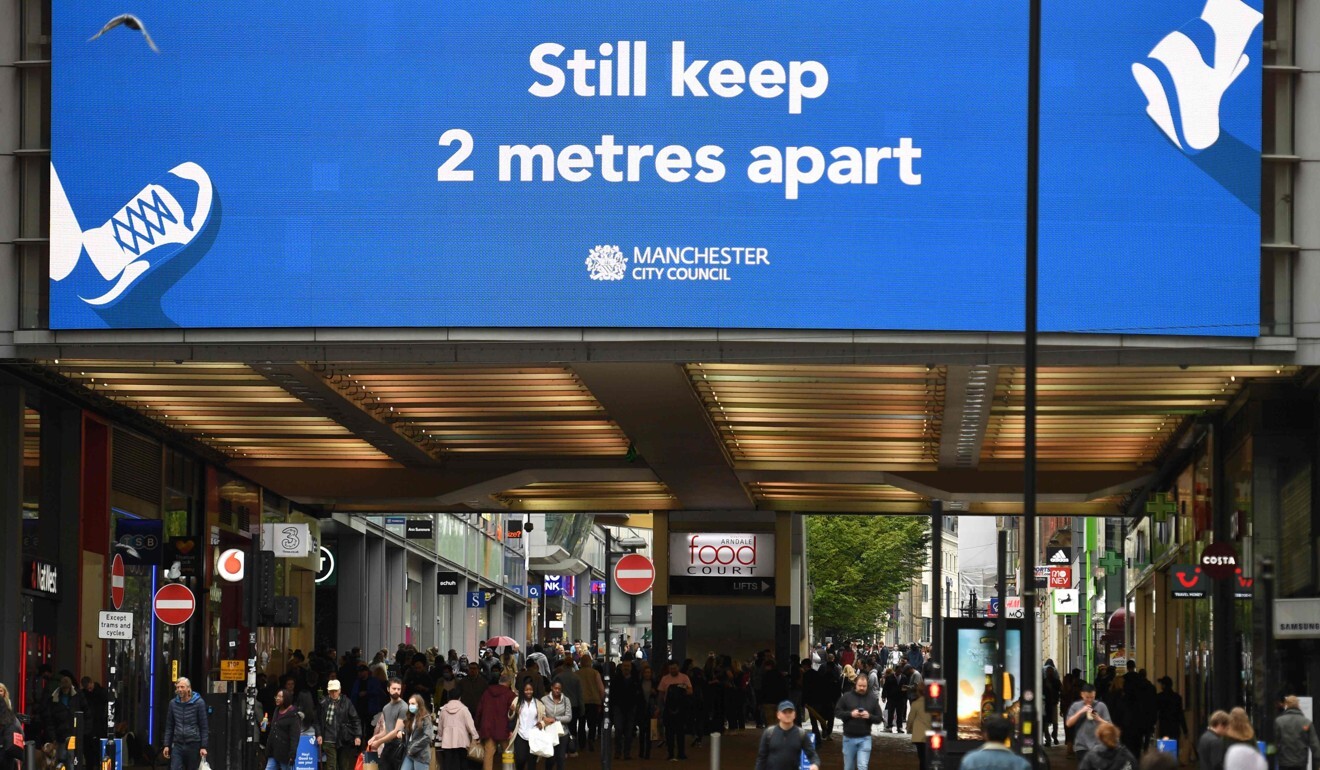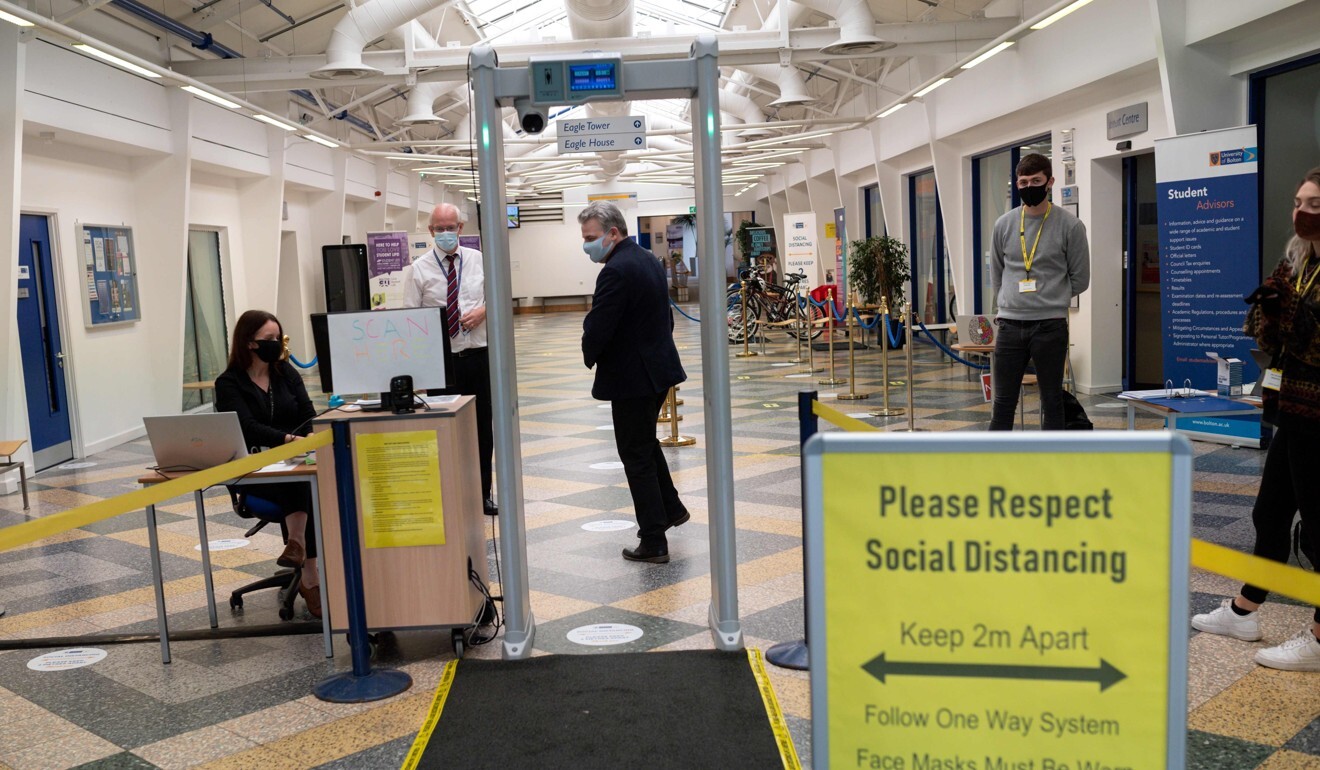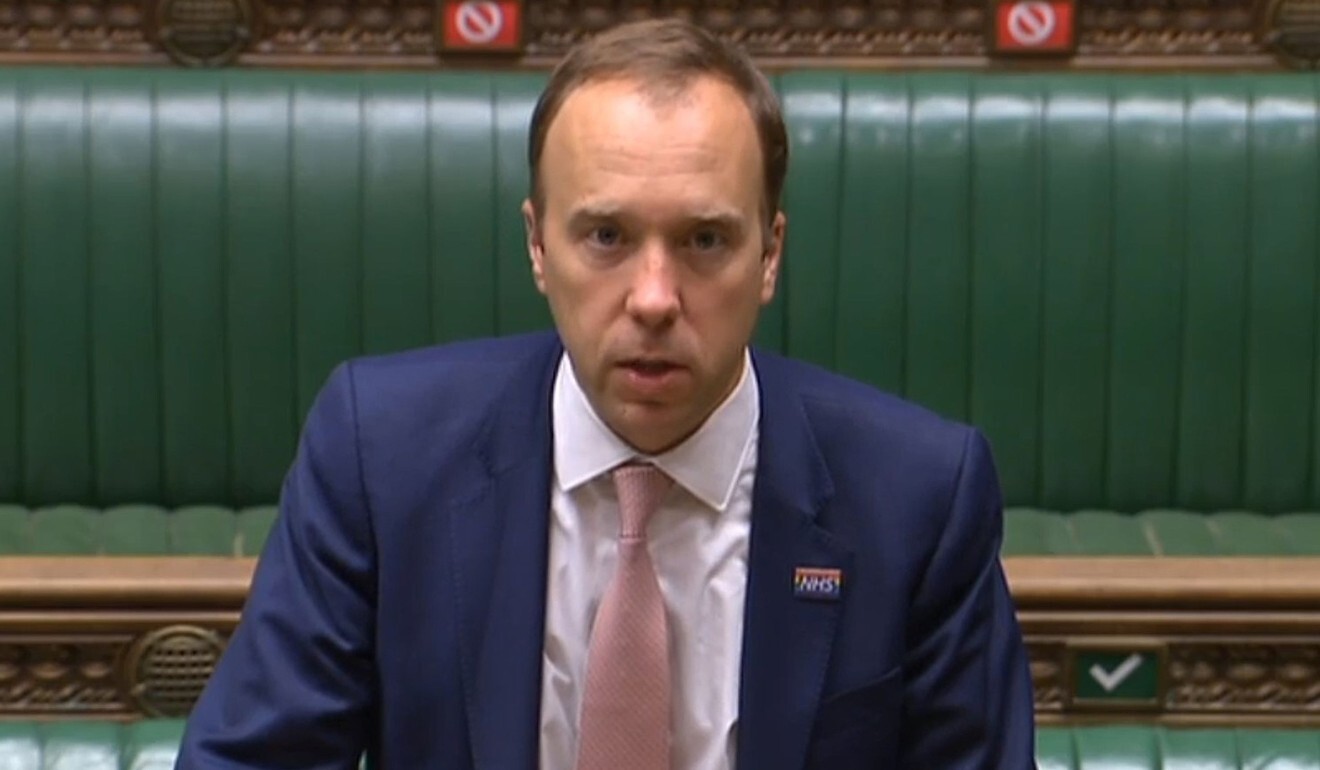New Covid-19 cases have almost doubled to 6,000 per day, contributing to climbing hospital admissions.
Britain’s Prime Minister Boris Johnson said that it was inevitable that the country would see a second wave of coronavirus and that while he did not want a second national lockdown, the government may need to introduce new restrictions.
Britain was reported to be considering on Friday whether to impose a new lockdown across the country, after new Covid-19 cases almost doubled to 6,000 per day, hospital admissions rose and infection rates soared across parts of northern England and London.
“We are now seeing a second wave coming in … It is absolutely, I’m afraid, inevitable, that we will see it in this country,” Johnson said.
The sharp rise in the number of cases in the country meant that the government needed to keep everything under review and he did not rule out further measures being introduced.

“I don’t want to get into a second national lockdown at all,” he said, but added: “When you look at what is happening, you’ve got to wonder whether we need to go further.”
Britain has reported the fifth-largest number of deaths from Covid-19 in the world, after the United States, Brazil, India and Mexico, according to data collected by Johns Hopkins University of Medicine.
Asked if a second national lockdown was on the cards, Health Secretary Matt Hancock said hospital admissions were doubling every eight days but that a crucial estimate modelled by the Office for National Statistics (ONS) would be key.
Its model pointed to about 6,000 new cases a day in England in the week to September 10, up from 3,200 cases per day in the previous week, with the North West and London seen as hotspots.
The UK said reproduction “R” number of Covid-19 infections in Britain has risen to a range of 1.1-1.4 from last week’s figure of 1.0-1.2.
“We’re seeing clear signs this virus is now spreading widely across all age groups and I am particularly worried by the increase in rates of admission to hospital and intensive care among older people,” said Yvonne Doyle, Medical Director at Public Health England. “This could be a warning of far worse things to come.”
Britain imposed new Covid regulations on the North West, Midlands and West Yorkshire from Tuesday.
Hancock said a lockdown was a last resort but that the government would do whatever it took to tackle the virus. Asked about a second lockdown, he said: “I can’t give you that answer now.”

On Thursday, Britain recorded 21 deaths from the disease, taking the total under the government’s accounting method to 41,705. Key statistics on the prevalence of the virus are due later on Friday.
More than 10 million people in Britain are already in local lockdown.
“Covid-19 infection rates have increased in most regions, particularly the North West and London,” the ONS said. “It is likely that infection rates in all other regions have also increased except the South West and West Midlands.”

The ONS said there had been clear evidence of an increase in the number of people testing positive aged two to 11 years, 17 to 24 years and 25 to 34 years.
Prime Minister Boris Johnson was criticised by opposition politicians for his initial response to the outbreak and the government has struggled to ensure sufficient testing in recent weeks.
Asked by LBC radio why the testing system was such a “shambles”, Hancock said Dido Harding, who is in charge of the system, had done an “an extraordinary job”.















